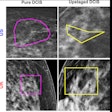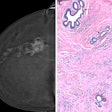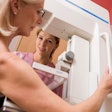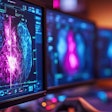
An international group of scientists are questioning a study that reported that an artificial intelligence (AI) algorithm developed in part at Google diagnosed breast cancer on mammography images more accurately than radiologists, according to an opinion piece published October 14 in Nature.
The original study was published January 1 in Nature, and it involved the analysis of an AI algorithm in interpreting mammograms from 26,000 U.K. National Health Services (NHS) hospitals. The study was conducted by a research group that included scientists from Google Health, DeepMind, Imperial College London, the NHS, and Northwestern University
The study found that AI correctly identified cancers from the images with a similar degree of accuracy to expert radiologists, and AI also reduced the proportion of screening errors.
But in the new opinion piece, scientists took the study to task. They believe that restrictive data access procedures, a lack of published computer code, and unreported model parameters make it impractically difficult for any other researchers to confirm or extend this work, according to the authors.
On a broader basis, the editorialists said that a lack of transparency in publishing AI algorithms for health applications is concerning. Furthermore, taking appropriate measures to protect patient privacy while allowing other researchers to contribute and correct potential errors that could result in poor outcomes for patients causes tension among scientists, they wrote.



















